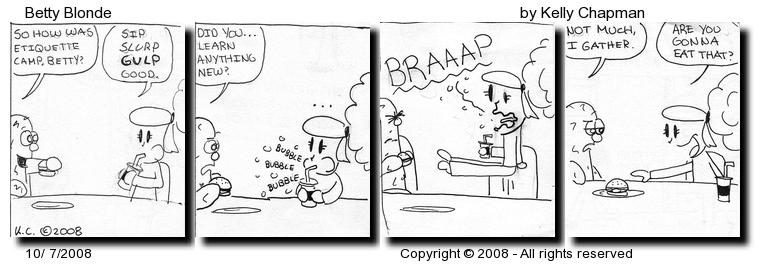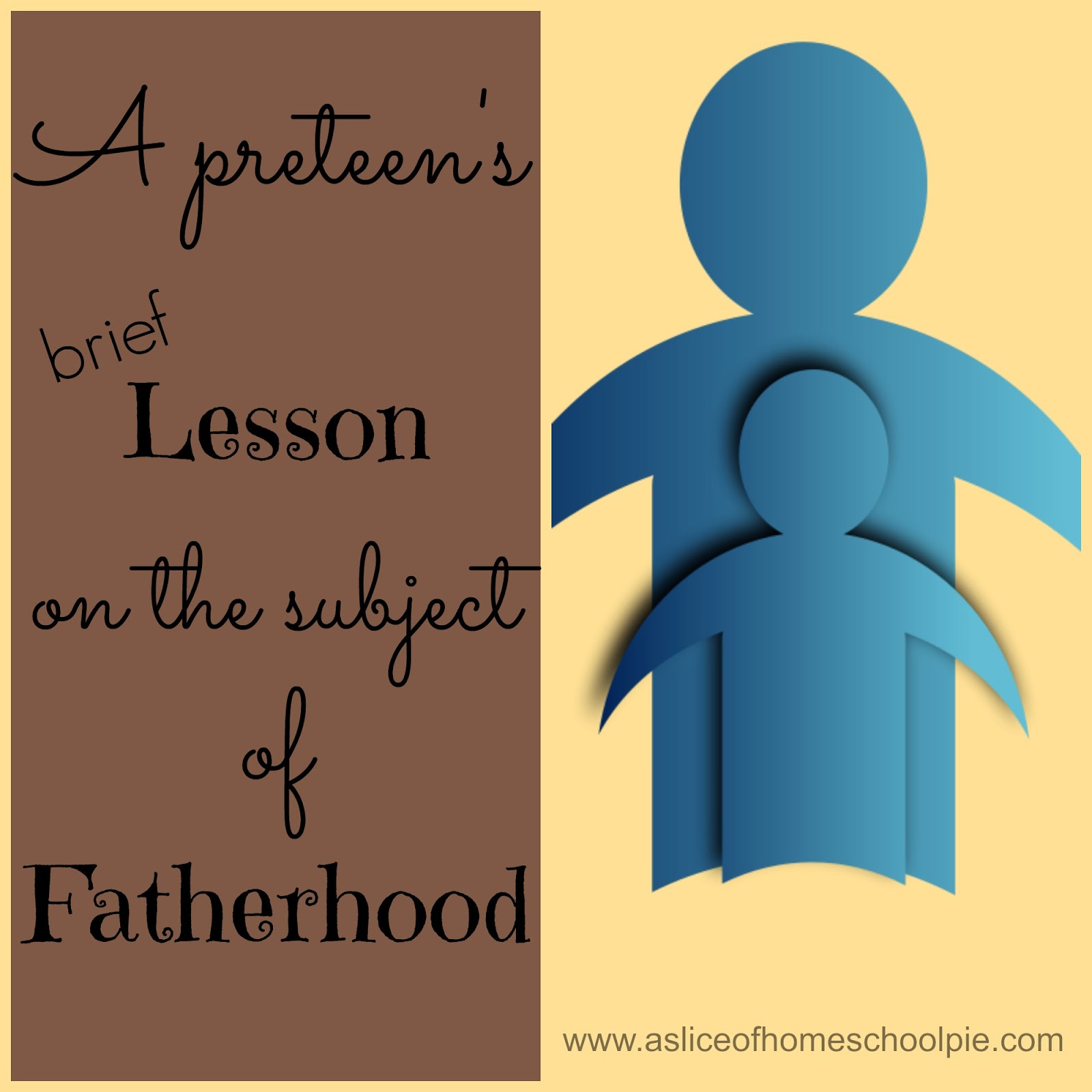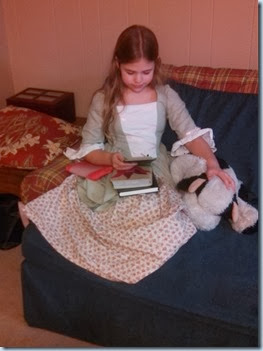Luke's Other Posts of Note
Shared posts
If You Want to Bear Fruit, You Must Do What?
Why Sonlight works for my wiggly, distractible, go, Go, GO!, into everything, hands-on learner
Box day, in Sonlight land, is a Big Deal. It’s emotional. It’s photo-worthy. It’s an event.
You can find myriad posts, complete with pics of smiling kids diving into boxes, that back up this fact.
As parents, we get it. The fun, really, is mostly ours. A whole box of books? Spines unbroken, pages fresh, adventures new? Yes, please!
Maybe you’ve got a child for whom a box brimming over with new stories is manna. Maybe you’ve got a sweet little boy or girl who follows you around the house with a book, waiting patiently for the dishes to be washed, the clothes to be folded, and the lunch to be made so that you will finally, finally, give in and read the day’s eighth chapter of Little House on the Prairie to him or her. Maybe you’ve got a kiddo whose idea of bliss is curling up on your lap and listening to your voice pour out the laments of Pooh, the true-life tales of missionary heroes, or the fantastic imaginings of Roald Dahl.
I’ve had a few of those myself. And Sonlight worked for them. Beautifully, even.
But then I had John Mark. And you know what? He’s not that kid.
He’s the kid that spends an hour trying to figure out how to plug each and every hole in a sieve so that it will serve as a bowl. He’s the kid that tries every configuration of batteries in a toy to try and see why the plus sign must go here, and the minus sign there. He’s the kid that is the airplane, the fire truck, the chicken emerging from the egg.
A box of “sit here and let me tell you something” amazing books?
Uh, not likely.
And yet …
Sonlight works for this boy. It really, honestly, truthfully does.
The minute his chores are done, he runs to the school shelves to pull out the Instructor’s Guide and flip it to the page I have marked. He pulls the books he thinks we’ll be using and stacks them on the coffee table, readying his favorite spot. And then he waits. Not so much patiently as expectantly, but he’s only five, after all.
I could not make this up.
So how does this happen? How does the same kid who can’t stop himself from stomping in every puddle and touching every bumpy rock manage to thrive with a curriculum centered on listening?
1. Sonlight books lend themselves to doing. Whether it’s the imitation of a favorite character’s discoveries or the rabbit trail of a topic of interest, Sonlight stories invite kids to get their hands dirty. Nature walks to see things for themselves, reenacting key story details, following up on an interesting point with a chance to try their hand at the skill … great books like these open the doors to much more learning once the cover is closed. John Mark has been inspired to bake bread, make string mazes, and drop coins into different containers this year. He’s always looking for a way to “do”– and Sonlight delivers.
2. Sonlight books are perfect for siblings. This is my second set of Sonlight learners, and while I am sure that families homeschooling one child enjoy their own kind of richness, I’ve watched Sonlight give my children a vast repertoire when it comes to group play. Assigning roles in stories, or working the details being studied into an imaginary game gives kids a mutual starting place. When everyone is enthralled with volcanoes, it’s easy to drum up a game of volcanologists.
3. Sonlight schedules readings in bite-sized chunks. Even my super-wiggly little man (who would probably be considered ADHD in a classroom setting) can handle a couple of pages at a time of a high-interest tale. If he’s held rapt by the story on a particular day, we can read more and work ahead … but that’s gravy. And I usually cut him off before he gets his fill to keep his excitement up.
4. Sonlight schedules so many options in one day, there’s sure to be a winner on the plate. when you first start using Sonlight, looking down a day’s column and counting the number of books you’ll be using in just one sitting can be daunting. If you can fight the urge to be overwhelmed– or its cousin, the urge to check every box– you’ll soon figure out how that schedule works for your family. With some of my kids, it was best to read an entire week’s worth of one book in a day, then tackle the other assigned readings the next day. For my wiggly guy, though, all that variety is perfect. Seven different toptics threading through his mind at once is thrilling, not dizzying.
5. Sonlight encourages rabbit trails. John Mark is the king of “Squirrel!” In other words, we’re pretty used to him being in the middle of a detailed description of something amazing that he has to tell us right then or he just might cease to breathe… and then, just as the tale comes to a climax, he notices that he’s wearing his favorite Chelsea Football Club jersey, but dad isn’t, so hey, Da-da (which is what he still calls him), where’s yours? Sonlight lends itself to this kind of randomness, even somehow inviting him to return to the original point seamlessly. We’ve sat with our Berenstein Bears science book, been drawn to a description of a frog life cycle, grabbed the iPad and watched a youtube video, ran upstairs and found a book on frogs, then come back to the Bears book, satisfied and ready to learn more.
Sonlight most definitely does not work for every family, or every child. No curriculum does, in my experience. But I’ve been delighted to find that good books really do cross the borders of learning styles– and sometimes, even keep wigglers engaged.
Shared at:
Raising Homemakers
{\rtf1\ansi\ansicpg1252
{\fonttbl\f0\fnil\fcharset0 HelveticaNeue;}
{\colortbl;\red255\green255\blue255;\red153\green153\blue153;\red249\green249\blue249;}
\deftab720
\pard\pardeftab720\sl380\partightenfactor0
\f0\fs24 \cf2 \cb3 \expnd0\expndtw0\kerning0
\outl0\strokewidth0 \strokec2  }
}
On Michelangelo and Freedom
The kids and I recently finished reading a book about Michelangelo. I had read this book before, but something struck me rather profoundly this time around.
Many times, information about the Renaissance seems to highlight the freedom artists had to pursue their craft, thanks to generous patrons. They did not have to work in other jobs simply to feed themselves, thus stifling their creativity. They could just enjoy the freedom to create.
But as I reread Michelangelo’s story, something dawned on me. He wasn’t free. None of the artists were truly free.
Michelangelo’s passion was sculpting. He was happiest when he was alone, chiseling away at a huge slab of marble, working to free the figure he could see inside. Yet this genius of an artist is well remembered for something completely different: a massive painted project. Had he truly been free, Michelangelo would never have picked up a painter’s brush. But he was not free. He was compelled by patrons and popes. He was constrained by the wishes of others. And as his life progressed, he began to feel more enslaved to his talent than delighted by it.
Yet, what would have happened had Michelangelo been able to choose his own path? What if he had never been ordered to paint?
Scripture tells of the freedom of believers in Christ. We are free! What a glorious thought! But, then we see Paul turn around and talk about being a bond-servant of Christ. Hmmm…so which is it? Are we free, or are we enslaved?
I’d like to think we are a bit like Michelangelo. We are free from the bondage that kept us locked away from who God created us to be. Yet we are commanded to turn from following our own desires. We are told to follow the will of Christ instead.
That will is going to take us down unfamiliar paths. It is going to lead us to do things we really do not want to do. It is going to insist that we attempt what we never dreamed ourselves capable of attempting.
In the process, we are going to leave behind gifts beyond anything we could imagine.
Dorothy Sayers: Theology Is Thrilling (The Dogma Is the Drama!)
 Dorothy L. Sayers (1893-1957) was a well-known British author, playwright, and scholar. Graduating from Oxford University in 1915, she was among one of the first groups of women to achieve this distinction. Sayers had a knack for unmasking misperceptions of the faith. In her day, efforts to redefine Christian practice and teachings were fueled by an apparent boredom with presentation of doctrine. In her Letters to a Diminished Church: Passionate Arguments for the Relevance of Christian Doctrine, she countered this mentality, critiquing the appalling apathy and biblical ignorance of those who called themselves “Christian.” Sadly, though, times have not much changed and her words are as pointed as ever.
Dorothy L. Sayers (1893-1957) was a well-known British author, playwright, and scholar. Graduating from Oxford University in 1915, she was among one of the first groups of women to achieve this distinction. Sayers had a knack for unmasking misperceptions of the faith. In her day, efforts to redefine Christian practice and teachings were fueled by an apparent boredom with presentation of doctrine. In her Letters to a Diminished Church: Passionate Arguments for the Relevance of Christian Doctrine, she countered this mentality, critiquing the appalling apathy and biblical ignorance of those who called themselves “Christian.” Sadly, though, times have not much changed and her words are as pointed as ever.
Official Christianity, of late years, has been having what is known as a bad press. We are constantly assured that the churches are empty because preachers insist too much upon doctrine—dull dogma as people call it. The fact is the precise opposite. It is the neglect of dogma that makes for dullness. The Christian faith is the most exciting drama that ever staggered the imagination of man—and the dogma is the drama.
Now, we may call [Christian] doctrine exhilarating, or we may call it devastating; we may call it revelation, or we may call it rubbish; but if we call it dull, the words have no meaning at all. That God should play the tyranny over man is a dismal story of unrelieved oppression; that man should play the tyrant over man is the usual dreary record of human futility; but that man should play the tyrant over God and find Him a better Man that himself is an astonishing drama indeed. Any journalist, hearing of it for the first time, would recognize it as news; those who did hear it for the first time actually called it news, and good news at that; though we are likely to forget that the word Gospel ever meant anything so sensational.
. . . . for the cry today is: “Away with the tedious complexities of dogma—let us have the simple spirit of worship; just worship, no matter of what!” The only drawback to this demand for a generalized and undirected worship is the practical difficulty of arousing any sort of enthusiasm for the worship of nothing in particular.
It would not perhaps be altogether surprising if, in this nominally Christian country [Britain], where the creeds are daily recited, that there were a number of people who knew all about Christian doctrine and disliked it. It is more startling to discover how many people there are who heartily dislike and despise Christianity without having the faintest notion of what it is. If you tell them, they cannot believe you. I do not mean that they cannot believe the doctrine; that would be understandable enough since it takes some believing. I mean that they simply cannot believe that anything so interesting, so exciting, and so dramatic can be the orthodox creed of the Church.
Surely it is not the business of the Church to adapt Christ to men, but to adapt men to Christ.
It is the dogma that is the drama—not beautiful phrases, nor comforting sentiments, nor vague aspirations to loving-kindness and uplift, nor the promise of something nice after death—but the terrifying assertion that the same God who made the world, lived in the world and passed through the grave and gate of death. Show that to the heathen, and they may not believe it; but at least they may realize that here is something that man might be glad to believe.
Just in case Levi’s feelings about math haven’t been clear…
I found the following doodled in his math book:
Musings of a Student
Math, be not proud. Thou art mean and base. Thou hath no royal luster in thy eyes. Give me those who art tired of thy blusters and brags. Send these to me. Math, thou shalt die. Thou shalt die a death so profound that none shall remember thee, or revive thee. Thy death shall be cause of rejoicin’. All the school masters shall be merry for math was a subject none would learn. The schoolboy would no longer creep like a snail, now he would run faster than a cheetah. A cheetah would wonder why he had been so challenged. One king will decree that addition symbols will be fed to his falcons. Ah, these simple musings do no good. I must be done, gentle listeners, for even papers have ears.
I don’t know what to do with this child.
2/10/14 MEMORIES ON MONDAY
My New Love
Welding gloves make excellent cold weather gloves!
Even when our temps were in the single digits, I did not feel the cold!
These were given to Clint by a friend.
Clint said he's going to order me some in my size.
Seriously, these things are wonderful!
In defense of crying about Jesus
Speaking of conferences, I spent all this weekend at the IF Gathering, and…wow.
Of the hundreds of women in attendance, I’m pretty sure I was the only Catholic. I was there as a guest of my dear friend Lisa-Jo Baker, who seemed to be both excited and a little bit concerned about what I’d think of this event.

With Lisa-Jo Baker, my Protestant-to-Catholic interpreter, and Tsh Oxenreider.
We walked into the Austin Music Hall, where a praise and worship band hand already begun blasting out a song that filled the auditorium. When we got settled at our table I noticed that almost all of the hundreds of women in attendance had their hands in the air!
Needless to say, a million question flooded to mind: Was this a requirement? I thought about doing it too, but I wasn’t sure of the proper procedures. I mean, am I allowed to do it in the front row? I might block the view of the people behind me. And am I obliged to keep my hands raised for a specific amount of time? I could only confidently commit to 30% of the song since, you know, my arms might get tired. And if my arms do become fatigued, could I lower them a bit, or is the 65-degree angle that most people are holding the preferred position?
It all seemed very complicated, so I just stood there like a statue of a startled Catholic woman.
“What is going on here?” I whispered to Lisa-Jo at a break between songs. “Is this a church service? Or a concert? Or a conference? What happens if I don’t raise my hands?”
Lisa-Jo looked over at me with a huge smile, barely containing her laughter, and said, “This is going to be so much fun.”
I had no idea.

My Benedictine medal next to my pass for the IF Gathering.

A spoken-word performance by Ann Voskamp and Amena Brown. Spoken word!
I’d never seen anything like it. We Catholics aren’t known for this style of event, and when I was an atheist I never got together with other nonbelievers to sing about nothingness.
And I have to admit, when I walked into the conference, I didn’t think there’s much of a place for this kind of thing in my spiritual life. After all, this is a religion of truth! There’s no end to the craziness you can believe when you start letting emotions cloud your thoughts. In order to have authentic relationships with Jesus, we must first have an accurate understanding of who he is — and in order to do that, we must remain focused on what is true about him and his Church, not what makes us feel good.
So when I first looked around the auditorium, I felt a little guilty for using a ticket. I was grateful for the invitation and I enjoyed everyone’s company, but, really, it was kind of a waste for me to be there. Who needs an experience when you have the truth?

Then Angie Smith and Annie Lobert took the stage together to share their stories. The lighting was perfectly calibrated to focus our attention on them and not the distractions of the crowd. The sound system was crystal clear. The video feeds allowed us to see close-up images of their faces, so that people all the way in the back row could catch even the most subtle flickers of expression.
They took turns telling their stories, and it was obvious that their words were the fruit of great sacrifice in the form of experience, prayer, and preparation.
Annie Lobert spoke of her descent into prostitution, and Angie Smith spoke of drifting away from God due to a life of comfort. They wove their tales together, demonstrating that even people whose lives seem utterly different on the surface have the same need for God at the core. When Annie said that she first got involved with pimps because they claimed to be successful businessmen and she was desperate for comfort and love and approval, I felt a tightness in my throat. When Angie shared about the time in her life when she felt like she didn’t need God because she already had everything she wanted here in the world, my face flushed as the words hit a little too close to home.
In my own prayer life I had been pondering these same themes, considering just how far off track things can go when we look to other people to fill our empty places. But now that I was encountering these same thoughts in a new way — experiencing them through a well-delivered story — they took on a new dimension, like a flat picture coming to life.


I would find this over and over again throughout the two-day event:
I kept having these powerful emotional reactions — and, despite myself, I kept feeling like they were good things. The brain-in-the-jar side of my personality firmly warned me that events designed to produce emotion were dangerous and manipulative, but my heart kept telling the brain in the jar to shut up and cry about Jesus for a minute.
I squirmed in this tension for most of the conference. And then, toward the end, something clicked.
Aaron Ivey of the Austin Stone Band was on stage, signing a song called Jesus Is Better. He poured great emotion into each word — but, more than that, he and the other musicians delivered a superb performance. Each guitar chord and drum beat came together at just the right time in just the right way to accentuate the ebb and flow of the lyrics. It was breathtaking to see the way all of these elements coalesced so perfectly to form something so much bigger and more powerful than the individual parts. Praise and worship isn’t normally a genre I enjoy, but this wasn’t praise and worship music as much as it was simply good music.
And when the singer began belting out the lines begging God to help us understand how much we need him more than we need anything else in the world…I’ll go ahead and admit that I cried.
As I wiped a tear from my eye, I realized that this was emotion as a response to beauty, not emotion for emotion’s sake. I can see how an event where there is pressure to have a certain reaction would be dangerous. If there’s a feeling like “IT’S THE CRESCENDO OF THE JESUS SONG, SO ALL GOOD CHRISTIANS WILL CRY NOW,” that’s a problem.
But if you have an auditorium full of people getting teary-eyed or waving their hands as an authentic response to beauty, it’s something different — something good.

When you walk into a great cathedral, that rush of emotion that overtakes you is the sensation of an impossible-to-understand truth suddenly penetrating your soul; it’s a moment of finally understanding that God is so great and we are so small in a way that you never could when you read about it in a book.
And so it was with the conference.
I already knew that Jesus’ love for me is unconditional; I’d been thinking about it a lot in prayer. But when a woman got up on stage and conveyed that same truth through a soul-stirring song, the melody of the music and the poetry of the words opened valves in my soul that were normally slammed shut. The truth was no longer confined to my intellect, but flooded with warmth and power into every part of my being.
That is, ultimately, what I took away from the IF Gathering:
Beauty helps us digest truth, and the type of feeling that is the product of a response to beauty is not dangerous or artificial. In fact, it’s a sign that something really good is occurring, because it’s the feeling of truth penetrating the soul.

As I walked out of the auditorium after the last song, I was filled with inspiration to make beauty a bigger part of my spiritual life. Whether it’s through singing Vespers with the Dominican Sisters of Mary, Mother of the Eucharist or praying in front of a richly colored icon or blasting O Sacrum Convivium through headphones while I pray the Rosary, I see now that beauty is an essential aide to the absorption of truth.
As surprised as I am to hear myself saying this, I think I’d like to go to another praise and worship conference too. I’ve heard that there are gatherings out there that feel more manipulative, but I’d definitely sign up to go to another one like the IF Gathering — because the hallmark of this particular event wasn’t the emotion per se, but the fact that it was the fruit of a lot of hard work and sacrifice from people who were willing to create something beautiful for God.
(Maybe next time I’ll raise my hands.)
.
Elio Motors
Day 899 of 1000
Late last year on my way home from Arizona, I went to the wrong gate by accident and set by a nice fellow with whom I struck up a conversation. I almost missed my plane, but had a fascinating discussion about a new company that had been started to build a new kind of inexpensive 2-seat, 3-wheel car. He was one of the V.P.’s of the company and explained it all in some detail. The name of the company is Elio Motors. They have identified a manufacturing facility in Louisiana and are scheduled to start delivering cars in 2015. Because it is a three wheel vehicle, they have done a lot of work to assure and to demonstrate its safety. They expect it to receive a 5-star safety rating. It gets 84 miles per gallon with an 8 gallon tank–over 600 miles on a tank of gas is pretty amazing. It is not a speed burner, but it goes 0-60 in 9.6 seconds so it is at least respectable. The retail price is low enough, $6800, that I am very tempted to get one for going to work. It looks pretty nice, too.
Betty Blonde #63 – 10/13/2008
Click here or on the image to see full size strip.
Sometimes, Love isn’t Enough for Kids {Part 1}
Love is not all you need to parent. Sometimes it isn’t enough to lovingly parent a child. Today, I’d like to share a little bit of my experience with parenting a child for six years, and then watching him walk away and never look back.
It won’t be an easy story to write and it might not be an easy story to read. Please hear me out, though, because there are other mothers, fathers, and children who need you to know about this.
As Christians, we like to believe that God-centered, loving, firm, grace filled parenting is all we need to have children who love their parents, appreciate home, and bond to their family. But… that’s not true.
At the ripe age of twenty-six, with a nine week old daughter, I became the foster mother to a twelve year old young man I loved. He had been one of my students when I taught in the public school system as the teacher for the deaf. His name was Daniel.
You would have thought that Paul and I would have gone into foster parenting an older child with our eyes wide open. Paul was the director of a boys’ home (and we lived there) where abused and emotionally disturbed boys found loving, consistent care after years of foster home hopping or institutional living. Their stories, often at only age seven, were heart breaking. The goal of The Ranch was to be their final placement.
To be home. The home they never had.
Yet, we knew, watched, and were trained to understand that many, if not most, of these boys had major attachment, cognitive, and emotional problems that would never fully be resolved. Paul ran training sessions about it.
Still… when Daniel came to our home, we believed that our love and our God-centered parenting would be enough to equip him for his life, to provide him a secure family setting, and to establish a beautiful bond as parents or at least parent-ish figures.
Nine months after he arrived, we became his managing custodial parents (sort of like we got custody in a divorce, but the parents still had visitation rights). I’m not kidding you in the slightest bit that we hit the ground running in parenting this almost teenager.
We jumped from newborn parenting books to teenager parenting books immediately. We took our role incredibly seriously and started to establish as much of a dream home for Daniel coupled with a firm training ground in godliness as we could. Our friends didn’t hesitate either.
To say that Daniel received the love, support, encouragement, and training within those first three years with us that he should have received the first twelve in his biological home is not inaccurate.
Then at age fifteen, Daniel reminded us that he was from a broken home and that the bonding he didn’t have in his early years took their toll. It was an incredibly painful reminder for us.
God designed the infant brain to require bonding (loving connection, if you like those words better) from a mother from birth. When that doesn’t happen for months or years, the brain is affected. Sometimes in small ways, sometimes in rather large ways.
Sometimes, a horrible issue called reactive attachment disorder (RAD) is created from the lack of bonding, lack of brain interaction, lack of love… in the early months. “Early months” is specifically non specific because the crucial months are different for each child.
RAD is not imagined. It’s not some kind of psychobabble that tries to excuse poor parenting. It’s real and it’s incredibly difficult.
And godly, loving, Christ-centered parenting can not cure it.
If you believe it can, I ask you to seek the LORD for wisdom. Can godly, loving, Christ-centered parenting cure the problems created by fetal alcohol syndrome? or meth addicted babies?
No, it can’t. It can bless in numerous ways and it can help the child reach their potential, but it can’t cure those issues.
Daniel’s horrible acting out (I’m not going to go into details, to honor him, but please know that when I say acting out, I don’t mean normal teenager behavior) should have reminded us of what we were dealing with by parenting an emotionally and physically abused child, but he had never been “diagnosed” and it wasn’t until a co-worker said, “Well, he is emotionally disturbed, so you expected this, right?”
Honestly… we just stared at him. Daniel? emotionally disturbed? What?!
That co-worker stared back and said, “Guys, you know this. He was abused and neglected. Yes, he is not a typical fifteen year old.”
We snapped right out of cozy, God-centered, loving, but firm, family dream for Daniel with us. It was not to be.
Daniel’s behavior was exceptional everywhere else. No one would have guessed what we had to walk through or how painful it was to be just care takers, not loving parents or even have any kind of bonding relationship with a young man we loved on for six years.
It is common for children who have been abused and/or neglected to suddenly start acting out when they hit puberty. Daniel was behind developmentally, so his puberty hit at age 15 and that is when things changed greatly.
Yet, even up until puberty hit, there was not the parental kind of relationship or bond. We weren’t his family.
Did/does Daniel have RAD? I don’t know. There are other issues involved with why he didn’t see us as his parents and that’s for another post, but I do there were signs and it is possible.
ETA: And though it was incredibly difficult and painful, we never regretted our decision to foster parent Daniel. We always had peace during the storm because we knew it was what we were supposed to do.
{Read the rest of the story tomorrow!}
What are your thoughts on RAD?
A Preteen's Brief Lesson On the Subject of Fatherhood
"As young children, I believe God gives us siblings in order to prepare us for the day we have our own family." This is how I began a conversation with my oldest son after a situation in which I heard him speaking harshly to his brother.
He stood there and listened.
"Son, someday if it's God's will, you're going to be a father. How you speak to your brother now, is preparing you for how you're going to speak to your son or daughter in the future. Did you hear how you just spoke to your brother?"
"Yes," he quietly answered.
"Is that how you'd like to speak to your own children?"
"No," he responded.
"I believe one of the reasons God gave you a brother was in order to prepare you for the wonderful father you're going to be. Being a dad is not always going to be an easy job, just like being a big brother isn't. This home is your training ground. If you practice speaking kindly to your brother, it will help you to grow up to be the kind of father who speaks kindly to his children."
And this was a preteen's brief lesson on the subject of fatherhood.

I know your time is precious, so any comments you share below will be greatly valued.
If you enjoyed this post, please Pin or Share it now by clicking on the icons below. Don't forget to become a subscriber.

 |
 |
 |
 |
 |
The Silly Princess
She looks so innocent sitting there with the skirt of her antebellum dress spread out so primly around her. Her lap is full of her quiet time necessities. And Cowabella faithfully keeps her company.
But then I step into her room later in the morning, and I find this.
I’m not sure there is any way to show the full extent of this tent.
It filled her entire room! True, it’s not a huge room, but still!
I love the creativity. And the delight. And the fun. 
Did you catch the grin?
Being a mommy is so much fun!
Secret Thoughts of a First-Year Homeschool Mom.
All right, everybody. I've started a blog and a Pinterest account. I'm going to be homeschooling soon! I've pinned every cute "school" idea using clothespins and crayons that exists! I've researched every curriculum! I'm going with "Alpha Sun Beka Jones Whatever" stuff because it's so much better than all the rest! I know it's going to be so awesome!
Read my preachy blog post all about "Alpha Sun Beka Jones Whatever" curriculum! Look at the mega box which just arrived! See my children pose with all their books! They are so excited! I caught a child peeking in the cover of a textbook. I snapped a photo and shared online. This curriculum is magical. They are already learning soooo much.
I'm also posting cheesy photos of my children with giant 1, 2, and 7 placards, indicating their grade levels this year and consigning them to fashion hell in about... ok, nevermind, I'm consigning them now. Tacky.
September:
We opened a book! Here's a picture of my kids opening a book. I'm also posting this list of "helpful homeschooling websites" I found/pirated from other sites. Allow me to take a little time here to spout off about how glad I am that God called me to homeschool, and how great homeschooling is.
God loves me, and I know all my readers love me, too. Go ahead and leave me a comment telling me so.
November/December
Turkey handprint crafts! Plans for Thanksgiving! Goofy instagram photos! Crafts!
And Christmas! Wheeeee! I'm so high on sugar, I'm just going to open five jars of glitter and post all about the mess my kids made as though that were some big surprising thing. You can comment about how this is so. funny. and cute.
January:
Oh. Sorry I've been quiet on the internet. This homeschooling thing can be hard work once you get past the "review" lessons and the relatives have left. I'm going to post some random "Throwback Thursday" photo and hope you don't notice.
February:
My daughter says she hates me and wants to go back to school. Time to hit the social media websites and ask random strangers for advice!
Learning Geography with the Olympics {Free Printables}
Who’s ready for the 2014 Winter Olympics? We love it all! From the opening ceremonies to the competitions to the heartwarming athlete stories all the way to the closing ceremonies, we will be watching. And as a homeschooling mom, I love the Olympics for another reason: it’s a fun way to teach geography.
This year I put together a little activity that uses our interest in the Olympics to motivate the kids to study geography! It’s super fun and super easy. I’ve included links to the printables I’ve created for this activity, so feel free to use the same activity in your home!
Learning Geography with the Olympics
To begin learning geography with the Olympics, we chose six different countries, one from each of the main continents. My kids chose the United States, Brazil, The Netherlands, Japan, Zimbabwe, and New Zealand. I printed out simple worksheets for each country, and divvied them up between the kids. They researched things like each country’s type of government, leadership, economy, and primary religion.
I also had them name one Olympic athlete from each country and name three sports in which each country will compete. (We only listed one event for Zimbabwe, as they only have one athlete competing.)
Finally, I had the kids past onto the worksheets the country’s flag. We hung the worksheets around our world map, along with a medal count chart I printed out and laminated. On the map, we marked the capital city of each of our countries with a thumbtack. We also put a thumbtack on Sochi, so they could see where the Olympic Games will take place.
We used yarn in Olympic colors to connect each worksheet first to it’s corresponding capital city on the map and then to connect to Sochi. The yarn provides a nice visual as to how far each country is traveling to get to the Olympics!
Learning During the Olympic Games
As we watch the Olympics, we will keep track of how many medals each of our countries earn. Since I laminated the medal count charts, we can just use dry erase markers to update the results each day.
We will also make it a point to check in on the specific athletes we’ve named on our worksheets. It helps make the Olympics a little more personal. I know I’m already rooting for Luke Steyn, Zimbabwe’s first ever Winter Olympics competitor!
And as an added activity, we will commit to praying for “our countries” and their athletes for the duration of the Olympic games.
Would You Like to Participate? Here’s What You Need!
This activity is super easy to put together, If you don’t have all of these supplies around the house, they can easily be purchased at Walmart. We had a lot of supplies on hand, and our purchases at Walmart cost less than $20 total.
- World Map
- Olympics Worksheet (PDF)
- Medal Count Chart (PDF)
- Printable Country Flags. You can search the internet for images. I found many available in this geography activity (PDF) from Homeschool Creations. This is a great geography activity on it’s own, too!
- Laminator and laminator pockets (I’ve used this one for a couple of years. It was a great purchase for our homeschool.) Alternately, you could use page protectors to save money if you don’t have a laminator.
- Yarn in Olympic colors. Walmart carries big skeins of Red Heart yarn in many colors at $2.77 a skein. We have PLENTY left over for other homeschool activities.
- Thumbtacks
- Dry Erase Markers
- Sochi 2014 Banner (PDF) – Optional
Overall, this little Olympic geography activity has upped our enthusiasm for both geography AND the Olympics! Bring on the opening ceremonies! We are ready to count some medals! Learning geography with the Olympics is a lot of fun!
This post is linked at Share Your Stuff Tuesday, Teach Me Tuesday, and Tending Home Tuesdays, Frugal Homeschool Friday, Free Printable Friday, and A Little R&R.
The post Learning Geography with the Olympics {Free Printables} appeared first on LynnaeMcCoy.com.
10 Reasons to Know a Little Bit of Church History
Who was Athanasius? In what century did the Protestant Reformation occur? Why was Jonathan Edwards important? What was the Second Great Awakening? In most churches, you would be hard pressed to find anyone who could answer these questions. Indeed, the study of church history has fallen on hard times. But here are 10 reasons why the average believer’s walk with Christ would be enriched by learning a bit of church history.
1. Church history confirms the promises of Scripture. For example, George Muller of England demonstrated time and again the truth of James 5:16 (“. . . The prayer of a righteous person has great power as it is working”), as God answered his prayers and provided miraculously for the needs of the 2,000 orphans in his care. And the Church’s growth from a marginalized, persecuted Jewish sect in AD 40 to the Roman Empire’s official religion in 325 to the world’s largest religion in 2014 powerfully confirms the truth of Matthew 16:18—the gates of hell will not prevail against Christ’s Church.
2. Church history comforts believers in their struggles. Jonathan Edwards was fired from a job. Martin Luther was plagued by fear. Elisabeth Elliot endured the death of two husbands—one at the hands of violent natives on the mission field. Yet none of their lives were ruined by these hardships. They all went on to fruitfulness. Knowing this encourages perseverance amid our own afflictions.
3. Church history broadens our choice of devotional literature. There’s nothing wrong with reading devotional guides by popular radio preachers. But knowing a bit of history helps believers realize that there are also enriching choices from ages past, including Charles Spurgeon, the Puritans, early Church fathers, and C. S. Lewis.
4. Church history helps Christians counter heresies and cults. Most theological errors are recapitulations from previous generations and have already been refuted by faithful Bible students. For example, Jehovah’s Witnesses and Muslims, who deny the deity of Christ, and the so-called “Jesus only” movement, which denies the coequality of the Godhead’s three persons, can all be answered with arguments from the Trinitarian controversy of the third and fourth centuries.
5. Church history helps believers interpret the Bible. Knowing how Christians in ages past viewed various passages can shed tremendous light on Scripture. The commentaries of John Calvin, Matthew Henry, John Gill, and others are all helpful resources in addition to today’s Bible aides.
6. Church history bolsters faith. Think about the vast number of people who have followed Christ over the ages and their staggering contributions to human flourishing. Christians helped spawn hospitals, orphanages, democracy, human rights, art, widespread literacy, and much more. Indeed, “we are surrounded by so great cloud of witnesses” (Hebrews 12:1).
7. Church history provides terms to use in describing difficult doctrines. The Trinity is “one essence and three persons.” Jesus has “two natures in one person.” The Bible is “inerrant and infallible.” Believers who don’t know a bit of church history probably won’t have these phrases in their theological tool belts.
8. Church history frees us from the illusion that modern, secular psychology is the only solution for emotional and behavioral problems. Though psychology brings helpful insights, the Puritans, Spurgeon, and others developed keen pastoral insights long before anyone heard of Ritalin or behavioral therapy. The student of church history enjoys a wealth of counseling resources.
9. Church history contains cautionary tales to remind us that Christians can dishonor their Lord. The crusades, the Salem Witch Trials, the Inquisition, and the Reformers’ squelching of religious freedom all engender humility and caution for believers. Zeal is not enough to justify our words or deeds. We must take care that actions we label “Christian” truly reflect Jesus.
10. Church history provides believers with a spiritual genealogy. We know who our physical ancestors are. Why not learn about our spiritual forebears too?
So get to know church history. You will probably find it more edifying that you ever considered.
Helpless, but not powerless
 There are degrees of heartache in life, each plotted on some imagined graph with “stubbed toe” on one end and “paper cut” farther up, up on through “loss” and “failure” and whatever else, but at the very top will be found a jagged black border surrounding bright red letters that read “sick child.”
There are degrees of heartache in life, each plotted on some imagined graph with “stubbed toe” on one end and “paper cut” farther up, up on through “loss” and “failure” and whatever else, but at the very top will be found a jagged black border surrounding bright red letters that read “sick child.”
I know this because I’m at the doctor’s office with two of them. What exactly is wrong with my children is beyond me, which is why we’ve taken the lengths to drive to the other side of town on such a hard winter’s day. The flu, perhaps—one of those strains not covered by this year’s shot. That, or two bad colds. I suggest the likely culprit is remorse for the cold and snow that has cancelled school these past few days. My son nudges me in the shoulder for that little remark. He tries to laugh. It comes out more a phlegmy snort and I think No, not a flu. Bronchitis, maybe. The doctor will know for sure.
My wife is on my opposite shoulder. Beside her is my daughter. She sniffles, and that small act brings a bit of rosy color to an otherwise pale face. Her coat is zipped to her chin, her blue scarf cinched tight, her legs tucked under her, yet she still shivers against the fever. It’s been two day now. My son’s discomfort is largely auditory—sharp sneezes and deep coughs, each punctuated by sudden and sometimes frantic sprints to the bathroom. My daughter’s condition is more silent and worrying. A diabetic since the age of four, maintaining her sugar is a constant walk upon a tightrope easily swayed and poorly moored. Any virus can ravage her. While you and I have a glucose level that holds steady anywhere from 80-110, hers just clocked in at 396.
And so we sit. And so we wait, huddled together in a tiny corner of this doctor’s office.
Our view is of a bleak outside and the bleaker faces that come in from it. It is a sad parade of the weak and the dying, and I think to myself that however stricken these poor souls are, it is at least themselves who are sick and not their children.
Hung in the middle of the far wall is a framed reprint of Sir Luke Fildes’ The Doctor, first painted in 1887. I’ve sat in this cracked vinyl chair and stared at that painting many times over the years through many discomforts, studying the central figure of the Victorian doctor gazing intently at his patient—a little girl lying sick on a makeshift bed of mismatched dining room chairs, two large pillows, and a ragged blanket.
It’s not the doctor I focus upon this time, but the two figures in the background—father and mother watching from a distance, he with a look of anxious worry and she with her head on the table in despair. Both regulated to the shadows, helpless to do anything.
That’s how I feel right now.
Even a bad parent would not want his or her child to suffer, to writhe and wince with cough and fever. Even a bad parent would wish to suffer in that child’s place. And yet life teaches us all that very often the power we believe we possess is a lie, nothing else. Ours is an immense world, and we are such small things. The virus coursing through the two children beside me is mean and debilitating, and so is the defenselessness felt by their parents. We’ve done all we can. It wasn’t good enough.
Yet in the small minutes I’ve sat here, I’ve learned this one important thing—we are often helpless in this life, but we are never powerless. What we cannot mend we can ease, and where we cannot cure we can comfort. I can’t make my son better, but I can offer him a shoulder upon which to lay his head and a joke to make him smile. I can’t chase my daughter’s fever, but I can put my arm around her and kiss the top of her head. I can listen as she tells me of the book she’s reading.
I cannot spare my children from the troubles of this life, but I can love them through those troubles.
Maybe in the end, that’s what matters.
Simplicity
Over the years, my perspective of the Proverbs 31 virtuous woman has evolved. She has been an ideal example, an overwhelmingly impossible standard, and a figurative concept. At times I have loved reading those final verses of Proverbs. Other times, I have wanted to completely ignore them and the feelings of inadequacy that they induced.
But with each perspective shift has come a slightly richer application of thoughts and concepts from the text. Ah, what delight comes when the Holy Spirit keeps the Word of God alive and fresh each time we read it!
As I read Proverbs 31 again in January, I noticed something new. I noticed simplicity. Now, I always hesitate to base any theological discussion on the absence of information. But, I still cannot help but notice that, although this passage discusses the woman’s wealth, it does not mention extravagance. Perhaps it is not clearly delineated in this passage, but Scripture as a whole supports the idea that “stuff” is problematic. The wealthy are not criticized and judged for being wealthy. They are judged for being addicted to their wealth and their possessions.
We live in a very materialistic society. We have closets full of clothes and shoes and games and this and that. We have kitchens piled high with the latest fancy dishes. We love our knick-knacks and decor. In short, we really enjoy our stuff.
I look at the virtuous woman, and I see how richly her family was fed and clothed. But, I also notice just how practical everything was. Everything she purchased had a purpose. Nothing was wasted. Nothing was extravagant. And because it all had a purpose, she had the financial means to make sure she bought the best.
Our family has simplified a great deal over the years, but we still live with a lot of fluff. Things we don’t need. Stuff. And that stuff ties us down. It increases the time we have to invest when God tells us it’s time to move. It increases the daily effort required to maintain our homes.
What if everything we did was bathed in practical simplicity? What if everything we had was kept only out of necessity? What if we were not tied down to stuff? Somehow, I think we would be much less overwhelmed by the image of the Proverbs 31 woman.
So, here’s to a year of progressing toward rich simplicity. May we become more like the Proverbs 31 woman this year because we choose to loose the bonds of stuff and embrace the freedom of simplicity.
"I LOVE school!"
I heard those words this afternoon from my almost-15-year-old freshman daughter!
Except she wasn't talking about our homeschool. She was talking about the "school" where she takes classes on Fridays.
::sigh::
But if I take my hurt feelings out of the equation for a moment, I ought to feel glad. And happy for her. After all, the purpose for spending all the time and money doing these outside classes is because she told me that she wanted to take some classes, but she didn't want to be gone all day long, every day. And I wanted her to have the classroom experience before she goes to college. And I wanted to have some grades from other teachers to enhance her transcript, and to allow for college recommendation letters.
And today I got some great feedback from her World Literature teacher - that she is one of two students who passed the test on "The Odyssey" (and would have had a 100% except that she forgot to answer in her essay why she liked or disliked the book). And the teacher went on to praise her writing style. I have always thought she writes very well, but it's nice to have that outside validation.
So she's doing well in the classes, she's enjoying the kids she has met and the group she sits with at lunch, and the teachers seem to like her.
Why are my feelings still hurt?
Because it feels like failure that she responds better to other teachers than she does to me?
Pretty much.
Still, I am glad that this arrangement is working for her (and for me), and I'm thrilled that she wants to take additional outside classes next school year!
It's not about me. It's not about me. It's not about me.
Romans 12
Day 894 of 1000
I read through Romans 12 today. It reminded me again that the Bible is full of statements that shaped the world.
9 Let love be without dissimulation. Abhor that which is evil; cleave to that which is good.
10 Be kindly affectioned one to another with brotherly love; in honour preferring one another;15 Rejoice with them that do rejoice, and weep with them that weep.
16 Be of the same mind one toward another. Mind not high things, but condescend to men of low estate. Be not wise in your own conceits.
17 Recompense to no man evil for evil. Provide things honest in the sight of all men.
18 If it be possible, as much as lieth in you, live peaceably with all men.21 Be not overcome of evil, but overcome evil with good.
There is an amazing standard of conduct described there. It is uniquely Christian. This is the standard to which we are all held. Some do a much better job than others at upholding it, be we all fail–miserably–in the end. It is always worth the effort to strive for this kind of conduct. There are temporal benefits to attaining it, but the eternal ones are profoundly greater.
Betty Blonde #59 – 10/07/2008
Click here or on the image to see full size strip.
What Real Encouragement Looks Like
Your Atheism Is Too Small: Lewis on the Problem of Evil
 Many people are atheists because they believe that evil and suffering in the world proves that God does not exist. Looking back on his own intellectual and spiritual journey from atheism to Christian belief, however, C. S. Lewis argued quite the opposite. While the suffering he experienced in his youth (the death of his mother, unhappy schooldays, and the traumas of service in the First World War) destroyed the simple faith of his childhood, he eventually came to realize that atheism is a superficial and inconsistent response to the problem of evil. For how, he argued, can anyone explain the presence within them of that very moral standard which alone enables them to complain about the existence of evil and use it as an argument against God? Where does this moral standard come from? Moreover, if there is no God and human beings are only accidental byproducts of a random and purposeless universe, how can atheists attach any significance to their thoughts and values? These points were summarized most effectively for a popular audience in this extract from one of Lewis’s famous BBC radio broadcasts during World War II.
Many people are atheists because they believe that evil and suffering in the world proves that God does not exist. Looking back on his own intellectual and spiritual journey from atheism to Christian belief, however, C. S. Lewis argued quite the opposite. While the suffering he experienced in his youth (the death of his mother, unhappy schooldays, and the traumas of service in the First World War) destroyed the simple faith of his childhood, he eventually came to realize that atheism is a superficial and inconsistent response to the problem of evil. For how, he argued, can anyone explain the presence within them of that very moral standard which alone enables them to complain about the existence of evil and use it as an argument against God? Where does this moral standard come from? Moreover, if there is no God and human beings are only accidental byproducts of a random and purposeless universe, how can atheists attach any significance to their thoughts and values? These points were summarized most effectively for a popular audience in this extract from one of Lewis’s famous BBC radio broadcasts during World War II.
My argument against God was that the universe seemed so cruel and unjust. But how had I got this idea of just and unjust? A man does not call a line crooked unless he has some idea of a straight line. What was I comparing the universe with when I called it unjust? If the whole show was bad and senseless from A to Z, so to speak, why did I, who was supposed to be part of the show, find myself in such violent reaction against it? A man feels wet when he falls into water, because man is not a water animal: a fish would not feel wet. Of course I could have given up my idea of justice by saying it was nothing but a private idea of my own. But if I did that, then my argument against God collapsed too – for the argument depended on saying that the world was really unjust, not simply that it did not happen to please my fancies. Thus in the very act of trying to prove that God did not exist – in other words, that the whole of reality was senseless – I found I was forced to assume that one part of reality – namely my idea of justice – was full of sense. Consequently atheism turns out to be too simple. If the whole universe has no meaning, we should never have found out that it has no meaning: just as, if there were no light in the universe and therefore no creatures with eyes, we should never know it was dark. Dark would be a word without meaning.
–The BibleMesh Team
The Discipline of Motherhood
Long ago, there were these days filled with structure. Days of boarding the school bus, following an assigned schedule, and following rules — until a certain point when I didn’t want to follow rules. But you know, people gave me this general idea how to structure my days & so I at least had that as a starting point.
Then, there were the days of working. There’s this extra nudge of motivation when you HAVE to be at work at a certain time or else you don’t get a PAYCHECK, so there was always that. There were the candy-shop eating working days, the Mickey D’s days (I wish I had a picture of Blake and I working there together as newlyweds for your viewing pleasure), the days in the hospital cafeteria swallowed in a gigantic white shirt with a black & white checkered collar, the library days, and the middle-of-the-night motel shift days. Then the part-time balloon blowing, flower arranging days. All of these days when I had a boss and paycheck to motivate me to show up & work hard.
And then began this whole other thing. This whole other person.
The days when the work had no definite starting time, no time to clock out. From the evening she was born, I clocked in and it’s this new relationship, this more-than-full-time gig, a job unlike any other. It was giggling with her & wanting to cry with her in the early morning hours. It was not like being in charge of making hamburgers or putting books on shelves or handing out room keys. It’s a task requiring more creativity than floral arrangement & more stamina than burger-grilling and more love than I ever had for a million white-chocolate-covered-pretzels.
And motherhood is so hard because you lose the routine along with yourself for awhile in the little years & everything is an emergency. I got rid of my day planner after the frustration ensued when I realized I could barely plan my schedule. I could barely keep my own thoughts straight because just when I thought the day was going smoothly, another diaper blowout, another tooth popping through, another anxiety-ridden fight with Blake, another really hard day of the job that doesn’t end.
And then, just when I almost felt like I had a handle on the whole thing, something crazy happened. Bam!
Just like that, another one! ;) Obviously, I had a little heads up, but you know.
And suddenly the only priorities were emergencies. Emergencies like I have to feed the baby and when I get done feeding the baby, I have to play with baby dolls because I am clearly completely neglecting my firstborn child and she is going to be forever traumatized. Emergencies like I need to take a nap right now because I was up all night working on school/taking care of said baby & I have a two-year-old so a nap is all we need today. Emergencies like the dishes need to actually be washed because no more are clean. Stuff like that.
They are these precious years in which it is intensely difficult to maintain sanity, let alone structure, most of the time. Today’s emergencies consisted of a two-year-old boy who fears that we will let him starve and reminds us every 90 minutes when he comes screeching “eeeat!” A four-year-old who had a *horrible* day because all she wanted to do was romp through the ice-covered yard. There are these moments when one is totally irrational & the other is…. well, totally irrational, so we often encounter many of these emergencies.
And because the days have felt this way, I have struggled as a mother to provide the consistency & structure & peaceful atmosphere that all the books say they need to thrive.
And I have struggled because I don’t know if I can home school, I don’t know if I can balance my work at home with my Noonday work, I don’t know if I can do this because I am kind of feeling emergency-ed out. I mean, you would too if your two-year-old boy gave birth to a pretend baby monkey.
So, it’s this really new & fresh thing, but I decided that if Mama is what I want to pursue as a job, then that’s exactly what I want to treat it like. If it’s my dream to home school these children, then I want to be a GREAT teacher. And I don’t just want to teach them school. I want to teach them to plan their days well, to be successful, to love each other well. I want to be present and intentional which is not at all easy for me with so many distractions. I am just ready to be a little more proactive and a little less reactive, and I think that is the great discipline of motherhood.
When these two were placed in my arms as babies, I was filled with emotions and hopes for nothing but the best for them. But all they will know is what they see, this is who they will be. And I want to raise children who are thoughtful, intelligent, considerate, efficient, generous and productive. I want them to live well & to love well, and I consider it my work to raise them this way.
I have had a lot of jobs, and I am even delighted with the job that I have alongside motherhood right now because I believe that I am setting a positive example for my babies. But, I do consider this great task of raising strong, unselfish, disciplined children to be the most important job that I have ever had. They are people. I am so thankful for the many ways that motherhood grows us as we aspire to be examples for our children.
Here’s to a little more planning & fewer “emergencies” because there’s something to learn from every moment. I’m showing up to teach……and to learn.
Love you dearly, Jen
Teaching Preschool Was Once My Life – Why I Believe We Should Abolish It!
Homeschooling Arguments We Should Retire
Like, really stink. Like really, really stink.
I'm sort of hoping to go through some of the worst offenders in a series of blog posts (we'll see, you all know how consistent I am with posting these days). On to the post.
"But no one can teach my kids as well as I do because no one loves my kids as much as I do."
I was at a meeting last year when this one came up. A lovely woman with younger kids said that and went on to explain why homeschooling is superior because we simply love our kids more then any teacher could. I stayed quiet. It was hard.
One, love is no guarantee of anything aside from warm feelings when you look at or hold your kids. There are parents who love their kids who also beat their kids. Their are parents who love their kids who, between work and other activities, barely see their kids. Love, modern love at least, in and of itself can mean very little.
Two, love does not mean the magical acquisition of skills. I loved my kids from the moment they were born, but I was not a very consistent or attentive parent for the first few years of my first-born's life, and there have been many times (many, many times) when I've realized how little I knew about parenting, healthcare, nutrition, homeschooling, etc. Although love was definitely a factor in why I learned more about some of those things, it also never interfered with me coming up with some pat justification for why I didn't need to learn more. Maturity and experience was much more useful in that regard.
Three, love of a child is not a necessary prerequisite to being an effective teacher of that child. I have no doubt that, although most of my teachers liked me in my school years, none of them loved me. The things the most effective had in common were a) subject knowledge, b) teaching skills and c) some concern for my success. Indeed, had Mr. Garden or Mr. Whidden loved me, that would have been quite a problem. Parents tend to frown on that sort of thing.
Four, love can often get in the way. Since most of us feel and express love as something squishy and rainbowy these days and don't really submit it to a hard examination, it tends to get away with all kinds of crap. It can distract us from the fact that our joy with a certain math program and our dreams for how it will turn our daughter into the next Einstien doesn't match the reality of what that daughter really needs in a math program. It can cause us to dramatically change course in our homeschooling when things seem too difficult for our little darlings when the truth might be that they need that struggle to get to the next step in understanding. It can cause us to be too timid, too restrained, too over reaching, too demanding...
Love, in the context of homeschooling, is a start. It's a hint, an intuition, a timid guide. Just a drop is sufficient and only then when paired with patience, discipline, creativity, skill and so on. And maybe that's how we should talk about love when we're discussing homeschooling with others. Otherwise to the outsider it's, "love is all we need," and it sounds like we don't even understand what goes into helping a child learn let alone have any of the skills and knowledge that are required. So, I propose we ditch that argument. Let it be a given that we love our kids and then move the discussion on to something else.
As long as it's not long lists of famous dead people who we claim were homeschooled. But that's the next post.
Pizza Dip

By contributing writer Lynn
This pizza dip takes the flavors of pizza and turns it into an appetizer that’s perfect for game day munching. And with the Olympics coming on the heels of the Super Bowl, you might be making this recipe a lot this month. Of course, pizza dip is delicious any day and is sure to be eaten up in a hurry.

Ingredients
- 2 8-ounce packages cream cheese, room temperature
- 2 cups pizza or marinara sauce
- 8 ounces pepperoni, chopped
- 4 ounces Canadian bacon, chopped
- 1 3.8-ounce can sliced olives, drained
- 2 cups shredded mozzarella or pizza cheese, divided
- chips or bread sticks for serving
Instructions
- In a bowl mix together cream cheese and pizza sauce.
- Stir in pepperoni, Canadian bacon, olives, and 1 1/2 cups cheese.
- Spread into an 9 x 9 inch or similar sized dish.
- Sprinkle with remaining cheese.
- Bake at 350° for 20-25 minutes or until heated through and cheese is melted.
Need more snacking ideas?
- Ham and Cheese Dip
- Bacon Pecan Caramel Corn
- Crunchy Roasted Chickpeas
- Roasted Red Pepper Hummus
- Spinach Artichoke Dip
- Barbecue Chicken Pizza
- More recipes from Lynn
Lynn writes at Lynn’s Kitchen Adventures, sharing cooking tips, recipes, and ideas of how to fit a love of cooking into a busy life. She also has a special allergy section where she shares recipes and thoughts on living with food allergies.
Related Stories
My daughters' poems
Reading In Front of the Kids, Not Just With Them
I have a funny story…. so, sweet Esther was reading her new favorite book series next to me in bed one day when she looked at me and asked, “Mama, have you ever read a whole book?”
Yes, of course, sweetie. Lots of them.
Moh-um. I mean it. A whole book.
(insert my shocked and questioning face here) Yes!! I have. Lots!
(insert her tilted head and smirking smile… that turns into a serious dubious look with raised eyebrows)
The stinker didn’t believe me!! I was beyond shocked.
How in the world could she possibly think I had never read an entire book?! I was bummed. Paul was entertained.
I realized that though I have read many read loud novels to her, she hasn’t realized when I’ve been reading for pleasure. And it matters that she realize I am doing it.
{OH, for Pete’s sake… while I was typing this up, Esther sat next to me again, so I asked her, “Remember when I was reading that loooong book on my Kindle when we went to the beach? And I cried when it ended?” Again she says, “A whole book?” THEN Paul Louis chimed in, “Mama, a whole book…. by yourself?!”
Clearly read alouds are the kids assisting me with a book and doesn’t count as me reading a book by myself. Which makes a little sense because I wouldn’t count it for them either.}
I didn’t matter that I read all of Les Miserables while we together on two beach trips. Or that I read L’Abri, and wept. Or that this fall I read The Book Thief, and bawled. Or that I have a stack of books consistently on (or in) my nightstand.
The deal is, I didn’t take the time to make sure she noticed me reading. The odd part about all of this was that when I taught deaf children in the public school, I implemented a sustained quiet reading time every day and I read too. I knew it was important that they saw an adult reading for pleasure.
Why is it important for children to see adults they admire reading?
Well, there is the practice what you preach gig, of course. If I tell my kids that reading is good for the brain, important, and a great habit, then I should demonstrate that. Kids have much more free time, of course, but a good habit is a good habit. Even if it’s a ten minute habit.
Then there is the whole encouragement aspect. If kids want to be encouraged to read, the best encouragement is modeling by the ones they love the most.
Parental pleasure reading can also intrigue the hesitant reader. I’ve been known to read a children’s book that I believe my hesitant reader would just love, in front of them. I grin. I sigh. I giggle. I swoon. It has worked. ”Hey, could I read that when you are done?”
If I used the reason of not enough time, then I could be encouraging the belief that busy people can’t or don’t read. This just isn’t true. We all know it’s about priorities. Again,even ten minutes is something.
I read so often that it never occurred to me that my children may not be noticing. Especially the younger ones. I will admit that I don’t read as often as they do, nor as often as I used to. My (non Bible) reading mostly involves articles on the internet, occasional non-fiction books, and a few fiction books a year.
I’d love to read more and I guess my babies have provided the incentive.
So… Here are the steps I’m taking to make sure my children know I read for pleasure. Whole books, even.
1. I take the book off my night stand. I most often read in bed at night, when the kids are in asleep. Naturally. BUT that doesn’t help the kids see me reading, even if it does help them see that I love books. Or piles of books.
If it’s just for five minutes in the school room during a break, I grab the book and take it into the public realm. Where the children can see me reading.
2. I talk about the book I’m reading. I can bring up my book at the meal table or just any ol’ time. It doesn’t matter. I just need to share that I’m enjoying it or there was a beautiful scene. Whatever. How Esther missed me bawling my eyes out on the hammock at the cabin is a bit beyond me, but somehow she did.
Kids are often in their own little world as far as what they notice, so I have to be proactive.
3. I ask them to come read with me wherever I am. Or I join them where they are. My kids are required to read a lot for school. They have both assigned historical fiction books and pleasure reading every day. Every once in awhile, I just snuggle up to them while they are reading or ask them to come read with me. They love it.
I don’t do all of these every day, of course. I aim for at least one. Really, the 80/20 principle applies. I’m just trying to make it more of a lifestyle. A habit for my life.
For my children.
I’m pretty sure I’ll benefit too.
Eventually, Esther and Paul Louis will believe me that I can read an entire book. By myself.
Do you read in front of your children?























